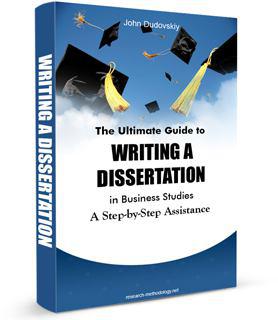Types of Literature Review
There are many types of literature review. The choice of a specific type depends on your research approach and design. The following types of literature review are the most popular in business studies:
Narrative literature review, also referred to as traditional literature review, critiques literature and summarizes the body of a literature. Narrative review also draws conclusions about the topic and identifies gaps or inconsistencies in a body of knowledge. You need to have a sufficiently focused research question to conduct a narrative literature review
Systematic literature review requires more rigorous and well-defined approach compared to most other types of literature review. Systematic literature review is comprehensive and details the timeframe within which the literature was selected. Systematic literature review can be divided into two categories: meta-analysis and meta-synthesis.
When you conduct meta-analysis you take findings from several studies on the same subject and analyze these using standardized statistical procedures. In meta-analysis patterns and relationships are detected and conclusions are drawn. Meta-analysis is associated with deductive research approach.
Meta-synthesis, on the other hand, is based on non-statistical techniques. This technique integrates, evaluates and interprets findings of multiple qualitative research studies. Meta-synthesis literature review is conducted usually when following inductive research approach.
Scoping literature review, as implied by its name is used to identify the scope or coverage of a body of literature on a given topic. It has been noted that “scoping reviews are useful for examining emerging evidence when it is still unclear what other, more specific questions can be posed and valuably addressed by a more precise systematic review.”[1] The main difference between systematic and scoping types of literature review is that, systematic literature review is conducted to find answer to more specific research questions, whereas scoping literature review is conducted to explore more general research question.
Argumentative literature review, as the name implies, examines literature selectively in order to support or refute an argument, deeply imbedded assumption, or philosophical problem already established in the literature. It should be noted that a potential for bias is a major shortcoming associated with argumentative literature review.
Integrative literature review reviews, critiques, and synthesizes secondary data about research topic in an integrated way such that new frameworks and perspectives on the topic are generated. If your research does not involve primary data collection and data analysis, then using integrative literature review will be your only option.
Theoretical literature review focuses on a pool of theory that has accumulated in regard to an issue, concept, theory, phenomena. Theoretical literature reviews play an instrumental role in establishing what theories already exist, the relationships between them, to what degree existing theories have been investigated, and to develop new hypotheses to be tested.
At the earlier parts of the literature review chapter, you need to specify the type of your literature review your chose and justify your choice. Your choice of a specific type of literature review should be based upon your research area, research problem and research methods. Also, you can briefly discuss other most popular types of literature review mentioned above, to illustrate your awareness of them.
[1] Munn, A. et. al. (2018) “Systematic review or scoping review? Guidance for authors when choosing between a systematic or scoping review approach” BMC Medical Research Methodology
 My e-book, The Ultimate Guide to Writing a Dissertation in Business Studies: a step by step assistance offers practical assistance to complete a dissertation with minimum or no stress. The e-book covers all stages of writing a dissertation starting from the selection to the research area to submitting the completed version of the work within the deadline.
My e-book, The Ultimate Guide to Writing a Dissertation in Business Studies: a step by step assistance offers practical assistance to complete a dissertation with minimum or no stress. The e-book covers all stages of writing a dissertation starting from the selection to the research area to submitting the completed version of the work within the deadline.
John Dudovskiy
